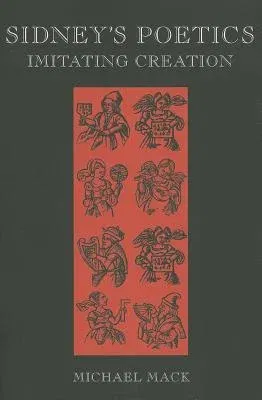Sir Philip Sidney's Apologie for Poetrie (c. 1582) has often been
identified as a landmark along the path from poetry understood as
imitation to poetry understood as creation. Critics are, however, far
from agreeing on the defining features of Sidney's transitional theory.
By attending to Sidney's familiarity with patristic and contemporary
theological works, Sidney's Poetics shows how theological
considerations shaped Sidney's synthesis of the literary-critical
traditions he inherited and led him to what is in fact the first
full-fledged theory of poetic creativity. No less bold than Pico's
Oration, Sidney's Apologie presents an innovative poetic theory that
is at the same time an innovative conception of human nature,
anticipating the Romantic poets by more than two centuries. For Sidney,
the creative power of the poet is the power to regenerate the reader
and, through the reader, the entire world.
While offering a new interpretation of Sidney's elegant and influential
treatise, Michael Mack also makes a case for a new understanding of the
historical process by which human beings were first thought to be
endowed with the power to create--in Sidney's day a power still reserved
for God alone. Showing that secularist accounts of modernity cannot
explain the development of Sidney's idea of creativity, Mack offers a
version of the birth of modernity in which sacred and secular values are
not necessarily opposed. Unlike previous accounts, his accommodates what
are now recognized to be the continuities between medieval and
Renaissance culture, between the Renaissance and Romanticism, and
between theological speculation and literary theory.
Sidney's Poetics is essential reading not only for students and
scholars of Renaissance literature and literary theory but also for all
who want to understand how human beings write and read creatively.
ABOUT THE AUTHOR
Michael Mack is Assistant Professor of English at The Catholic
University of America.
PRAISE FOR THE BOOK
"Mack's probing, informed study looks afresh at the central assertion
made by Philip Sidney in his Apology for Poetry, the most vital
Elizabethan treatise in the subject. . . . . [I]t makes a significant
contribution to the large literature of interpretation devoted to the
Apology, and students of 16th-century intellectual culture should not
neglect it."- E.D. Hill, Choice
"In clear and concise English, Mack ranges within the zodiac of
classical, medieval, and Renaissance sources in his attempt to
understand how Sidney might have understood his terms. . . . Sidney's
Poetics is well worth reading. . . ."--Theodore L. Steinberg,
Renaissance Quarterly
"A remarkably comprehensive account of Sidney's numerous sources. . . .
Sidney's Poetics will be the benchmark by which other books on the
subject are judged. Michael Mack writes with admirable clarity on a
complex subject. His book has the potential to become the standard in
the field."--R. V. Young, North Carolina State University
"Michael Mack's Sidney's Poetics: Imitating Creation is perhaps best
placed in this section on religion. Putting, as Mack notes, 'great
analytical pressure' on a 'rather small portion of the Apology' (p.6),
this very earnest reading interprets the 'force of divine breath' Philip
Sidney ascribes to poetry straightforwardly as the power of the Holy
Spirit. Through poetry, human beings can achieve their highest and
divine potential, sharing in God's own creativity through the
transformation of audiences, through the 'power to redeem fallen
humanity' (p.11)." -- Mary Ellen Lamb, SEL: Studies in English
Literature
"Michael Mack . . . Proves Sir Philip Sidney read widely and well . . .
Sidney's Poetics goes far to connect Sidney's new Renaissance ideas
with medieval thin

